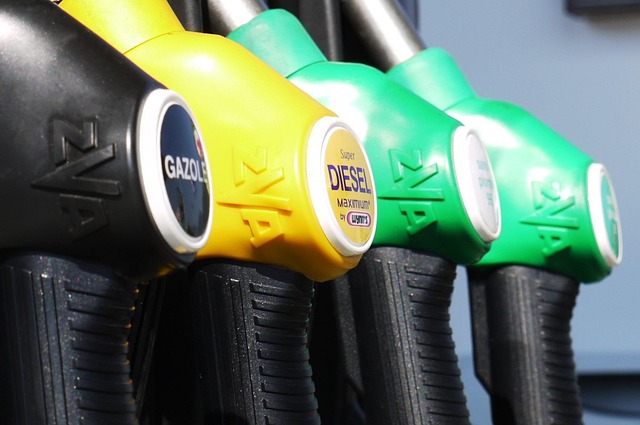Before selecting gasoline vehicles, consider daily driving needs, commute distances, and access to fueling stations. Examine fuel efficiency, emissions data, and engine performance. Compare consumer reports, brand reputation, and maintenance records. Prioritize advanced safety features and balance environmental impact with personal preferences.
When it’s time to buy a new car, choosing a reliable gas vehicle is essential for both environmental impact and your wallet. This comprehensive guide walks you through selecting the best gasoline-powered automobile by outlining key considerations. First, understand your fuel needs, then delve into efficiency and emissions data. Compare engine performance, assess reliability and maintenance requirements, and explore advanced features and safety ratings. By following these steps, you’ll be well on your way to making an informed decision when choosing a reliable gasoline vehicle.
- Understand Your Fuel Needs
- Research Efficiency and Emissions
- Compare Engine Performance
- Assess Reliability and Maintenance
- Explore Advanced Features and Safety
Understand Your Fuel Needs

Before diving into the market to choose a reliable gasoline vehicle, it’s essential to understand your fuel needs. Factors like daily commute distance, frequency of long-distance travel, and access to fueling stations play a significant role in determining the most suitable option for you. For instance, if you primarily drive short distances within the city, a conventional high-mileage gasoline sedan or compact car might be all you need, offering excellent fuel efficiency and low cost gasoline car maintenance. On the other hand, if your job involves frequent long drives or you live in a remote area with limited fueling options, hybrid electric vehicles (HEVs) or even high mileage gasoline SUVs could provide the range and reliability you require.
Knowing your requirements will help guide your selection process, ensuring that you select a vehicle capable of meeting your daily fuel needs efficiently. Additionally, considering the ongoing cost savings associated with low-maintenance gasoline cars versus more complex electric or hybrid models can significantly impact your long-term budget. By carefully evaluating these factors, you’ll be better equipped to choose a reliable gasoline vehicle tailored to your specific needs and preferences.
Research Efficiency and Emissions

When selecting a reliable gas automobile, it’s crucial to delve into its efficiency and emissions data. Researching these aspects allows buyers to make informed decisions about the environmental impact and cost-effectiveness of their vehicle choices. Modern gasoline cars with excellent safety ratings often prioritize fuel economy, emitting fewer pollutants thanks to advanced engineering and innovative technologies. This trend is particularly pronounced in high mileage gasoline SUVs, which offer both robust performance and impressive fuel efficiency.
Beyond traditional measures, many manufacturers are focusing on providing eco-friendly driving experiences through hybrid or electric variants, further reducing carbon footprints. By comparing efficiency ratings and emissions standards, consumers can choose vehicles that align with their environmental values while ensuring reliable and safe transportation.
Compare Engine Performance

When choosing reliable gasoline automobiles, comparing engine performance is a critical step to ensure you select an affordable green gas car that offers both efficiency and power. Look beyond horsepower ratings and focus on metrics like torque delivery, fuel economy, and emissions output. Modern efficient and powerful gas cars are engineered to deliver exceptional performance while minimizing environmental impact.
By examining these factors, you’ll be able to identify green gasoline alternatives that not only meet your driving needs but also contribute to a sustainable future. Remember, the best affordable green gas car for you will depend on your specific requirements, budget, and environmental considerations.
Assess Reliability and Maintenance

When selecting a reliable gasoline vehicle, assessing reliability and maintenance is paramount. Start by researching the vehicle’s reputation for durability and checking consumer reports to gauge its performance over time. Opting for well-regarded brands known for their robust engineering can be a strong indicator of long-term dependability. Moreover, examining maintenance records and owner experiences offers valuable insights into potential issues and cost-effective upkeep.
Consider focusing on fuel-optimized gasoline vehicles that balance performance with efficiency. Some durable gasoline car models are renowned for their low maintenance requirements and top-performing gas engines. Prioritizing these characteristics ensures a smoother driving experience while potentially reducing long-term costs associated with frequent repairs or extensive servicing.
Explore Advanced Features and Safety

When selecting a reliable gasoline vehicle, exploring its advanced features and safety ratings is paramount. Modern gasoline car designs often incorporate innovative technologies aimed at enhancing driver assistance and passenger protection. These features include adaptive cruise control, lane-keeping assist, automatic emergency braking, and blind-spot monitoring—all designed to prevent accidents and make driving safer.
Moreover, understanding the hybrid vs traditional gasoline cars debate can guide your decision. Gasoline alternatives for cars like hybrids offer improved fuel efficiency and reduced emissions, appealing to eco-conscious buyers. However, traditional gasoline vehicles remain popular for their proven performance, reliability, and readily available fueling infrastructure. Ultimately, choosing a reliable gasoline automobile should balance safety, technology, environmental impact, and personal preferences.
When choosing a reliable gasoline vehicle, it’s essential to consider your fuel needs, research efficiency and emissions, compare engine performance, assess reliability and maintenance, and explore advanced features and safety. By balancing these factors, you can select a vehicle that offers not just performance but also longevity and environmental responsibility. Remember, the right choice depends on your unique circumstances, so take your time, do your research, and drive away with confidence.
